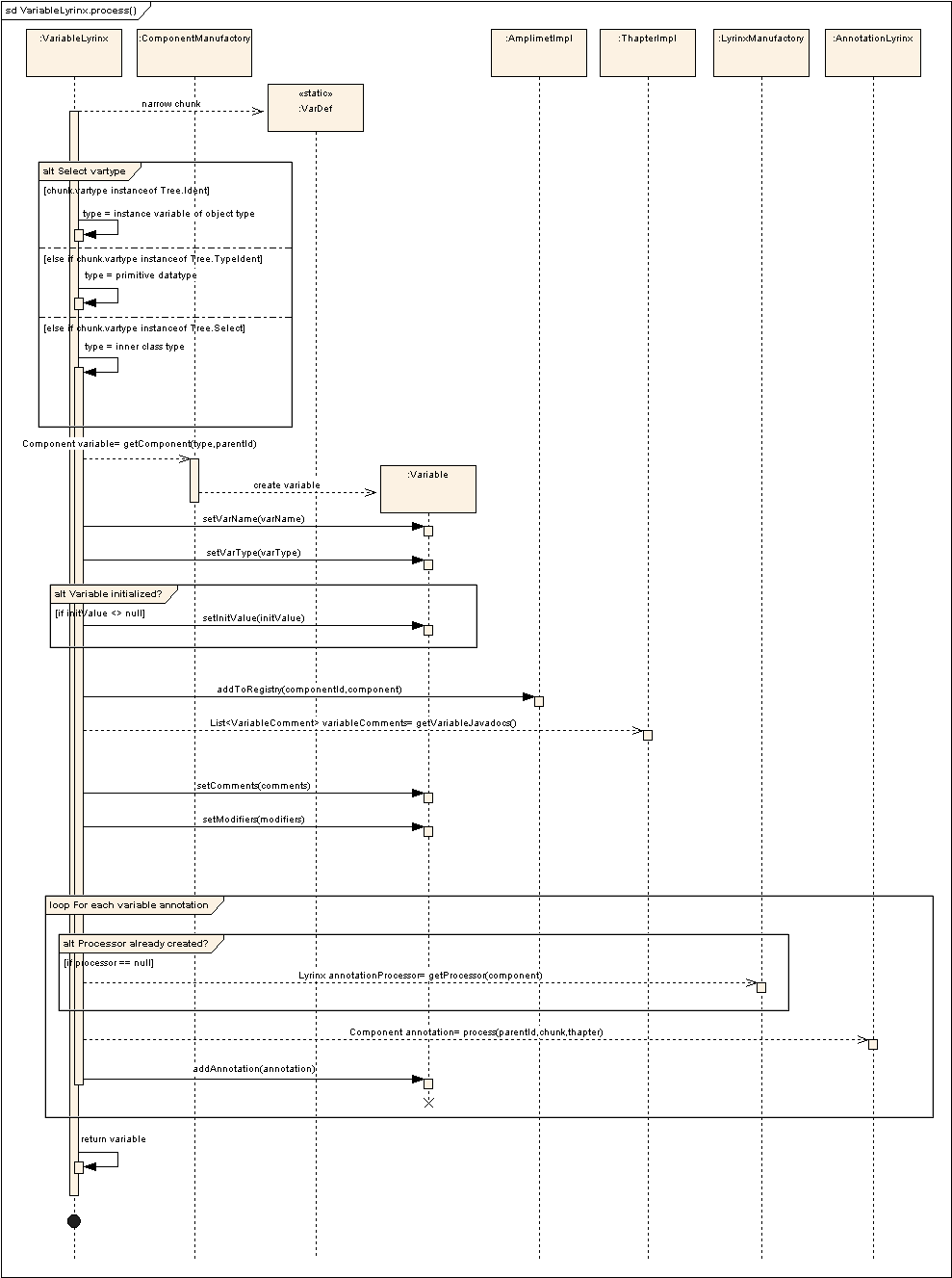The steps performed in analyzing an instance variable
The VariableLyrinx.process() method is invoked by the ClassLyrinx. This
method has as goal to create an instance of the
uk.co.jemos.clanker.components.Variable class and to initialize
its attributes with values such as Javadocs, type, name, etc.

These the steps performed by the VariableLyrinx.process() method:
- For the reasons already seen for classes and methods, this
method narrows down the instance of
com.sun.tools.javac.Tree object to the type
com.sun.tools.javac.Tree.VarDef.
- The method then proceeds in determining the variable type. There
are substantially three instance variable types: instance variables
of object type; instance variables of primitive datatypes, and
instance variables of an inner class type. The Java compiler returns
three different types of Tree objects, one for each variable type.
Once the method has determined the instance variable type, this
information is set as attribute in the Variable object
after one has been created thanks to the ComponentManufactory
class.
- The method then sets the variable name.
- If the variable was initialized, the method
sets this information in the Variable class,
as attribute.
- The method then, similarly to what was done for classes and
methods (and more generally for every component) adds the
Variable object in the registry maintained by the
Amplimet.
- The method then retrieves the Javadoc comments for this
variable from the ThapterImpl object, and sets those
comments as attribute in the Variable object.
- The method sets the modifiers in the Variable object,
represented by a collection of strings.
- For each annotation, invokes the process()
method on the Annotation Lyrinx and adds the
uk.co.jemos.clanker.components.Annotation object
returned to the Variable class as attribute.
- Finally, the artifact of this method (i.e. the instance
of the uk.co.jemos.clanker.components.Variable
class) is returned to the client (the ClassLyrinx.process() method)
The attributes made available by the Variable component are the
following:
- The annotations, contained in a collection.
- The Javadocs, represented by an instance of
the uk.co.jemos.clanker.components.VariableComment
class.
- The initial value, represented by an Object type
- The modifiers, contained in a collection of
Strings
- The unique parent identifier, represented by the
hashcode of the Clazz object parent of this
instance variable
- The variable name
- The variable type, represented by a String which
can contain the plain name if the type was in the
java.lang package, the fully qualified name
otherwise.

